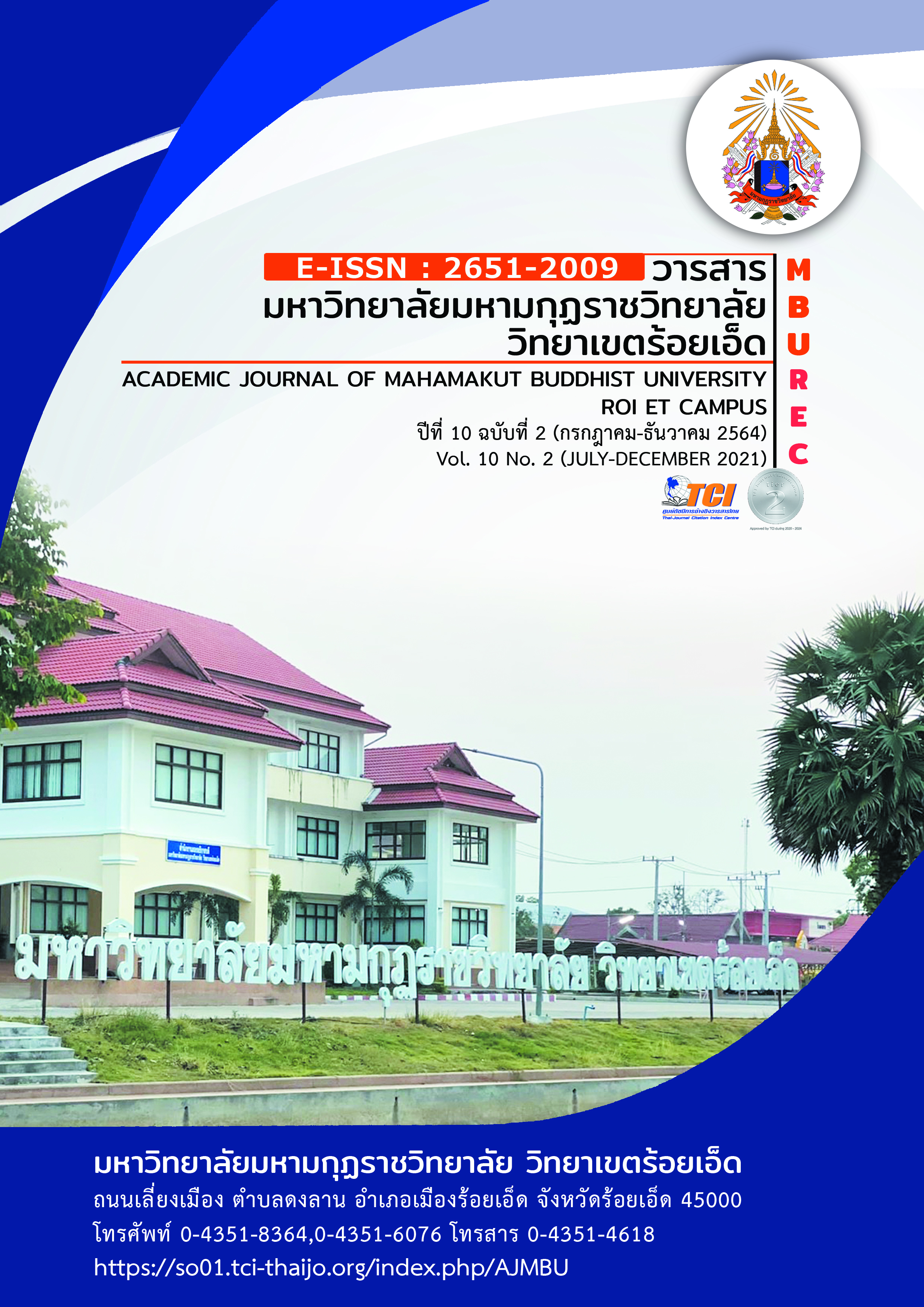A Development of Achievement and Innovative Thinking for Mathayom Suksa 4 Students by Project-based Learning
Main Article Content
Abstract
The objectives of the research article were 1) to develop learning achievement of Mattayomsuksa 4 students by using project-based learning in the criteria of 80%, 2) to develop innovative thinking of Mattayomsuksa 4 students by using project-based learning. The population of this study was Mattayomsuksa 4 students who were learned by project-based learning. The participants were 35 students who studied at 4/1 class, in academic year 2019 at Kantharawichai School, Maha Sarakham Province. The instruments used in this study were learning achievement test, task evaluation form, behavior observation form, an interview form. The data was analyzed by statistics to find out mean, standard deviation, and percentage.
The results of research were found that: 1. Learning achievement of students. The findings found that, in phase 1, the mean score was 17.00 or 85.29%, and the standard deviation was 0.94. Meanwhile, in phase 2, the mean score was 17.51 or 87.43% and the standard deviation was 0.82. The findings were higher than the criteria of 80%. 2. Innovative thinking was evaluated by students’ tasks/productions. The findings found that the mean score was 15.70 or 87.30% out of 18, and the standard deviation was 0.55. The students’ innovative thinking was considered at a high level. Moreover, the students’ innovative thinking was evaluated by observing students’ behavior. The mean score was 17.03 or 94.64% out of 18 and the standard deviation was 0.55.
Article Details
References
โรงเรียนกันทรวิชัย. (2562). แบบรายงานข้อมูลนักเรียนประจำปีการศึกษา 2562. มหาสารคาม : โรงเรียนกันทรวิชัย.
วิมลศรี สุวรรณรัตน์. (2550). ร่วมปฏิรูปการเรียนรู้กับครูต้นแบบ การจัดกระบวนการเรียนรู้ที่เน้นผู้เรียนเป็นสำคัญ การสอนแบบ “โครงงานวิทยาศาสตร์”. กรุงเทพมหานคร : สำนักนโยบาย แผน และมาตรฐานการศึกษา ศาสนาและวัฒนธรรม.
วีณา ประชากูล และประสาท เนืองเฉลิม. (2554). รูปแบบการเรียนการสอน. มหาสารคาม : สำนักพิมพ์มหาวิทยาลัยมหาสารคาม.
สังคม ไชยสงเมือง. (2561). การพัฒนาระบบการเรียนการสอนแบบผสมผสานโดยใช้โครงงานเป็นฐานเพื่อส่งเสริมทักษะการแก้ปัญหาและทักษะการใช้เทคโนโลยี สำหรับนักเรียนชั้นมัธยมศึกษาปีที่ 3 สังกัดองค์การบริหารส่วนจังหวัดมหาสารคาม. วิทยานิพนธ์การศึกษามหาบัณฑิต สาขาหลักสูตรและการสอน. มหาวิทยาลัยมหาสารคาม.
สุวิษา ไกรฉวี. (2560). การพัฒนากิจกรรมการเรียนรู้วิทยาศาสตร์โดยใช้ปัญหาเป็นฐานร่วมกับการเรียนรู้แบบโครงงาน ชั้นมัธยมศึกษาปีที่ 3 : การวิจัยผสานวิธี. วิทยานิพนธ์การศึกษามหาบัณฑิต สาขาวิชาหลักสูตรและการสอน. มหาวิทยาลัยมหาสารคาม.
Amelink, C., Fowlin, J. and G. Scales. (2013). Defining and Measuring Innovative Thinking Among Engineering Undergraduates. Retrieved 27 July 2019. From https:// www.asee.org/public/conferences/20/papers/5898/download
Amelink, C.T., Watford, B.A., and G. Scales. (2012). Developing innovative thinking among engineering under graduates : Examining the role of slate enabled technology. Retrieved 27 July 2019. From https://ieeexplore.ieee.org/document/ 6462233
Ardaiz-Villanueva. (2011). Self-Regulation of Learning Supported by Web 2.0 Tools : An Example of Raising Competence on Creativity and Innovation. Public University of Navarre, Spain.
Dalrymple, K. (2015). An Action Research Study Aimed at Designing and Implementing an Innovative Unit of Instruction Within the Context of Developing Innovative Thinking Skills Among Primary School Students. The University of the West Indies. Retrieved 27 July 2019. From http://uwispace.sta.uwi.edu/ dspace/bitstream/handle/2139/41190/Karen%20Dalrymple.pdf?sequence=1&isAllowed=y
Horth, D. and D. Buchner. (2009). Innovation Leadership : How to use innovation to lead effectively, work collaboratively and drive results. London : Center for Creative Leadership.
Weiss, D. S. and C. Legrand. (2011). Innovative Intelligence : The art and practice of leading sustainable innovation in your organization. New York : John Wiley & Sons.
Weiss, S. Davic and Legand, P. Claude. (2011). Innovative Intelligence. Ontario : John Wiley & Sons Canada, Ltd.


